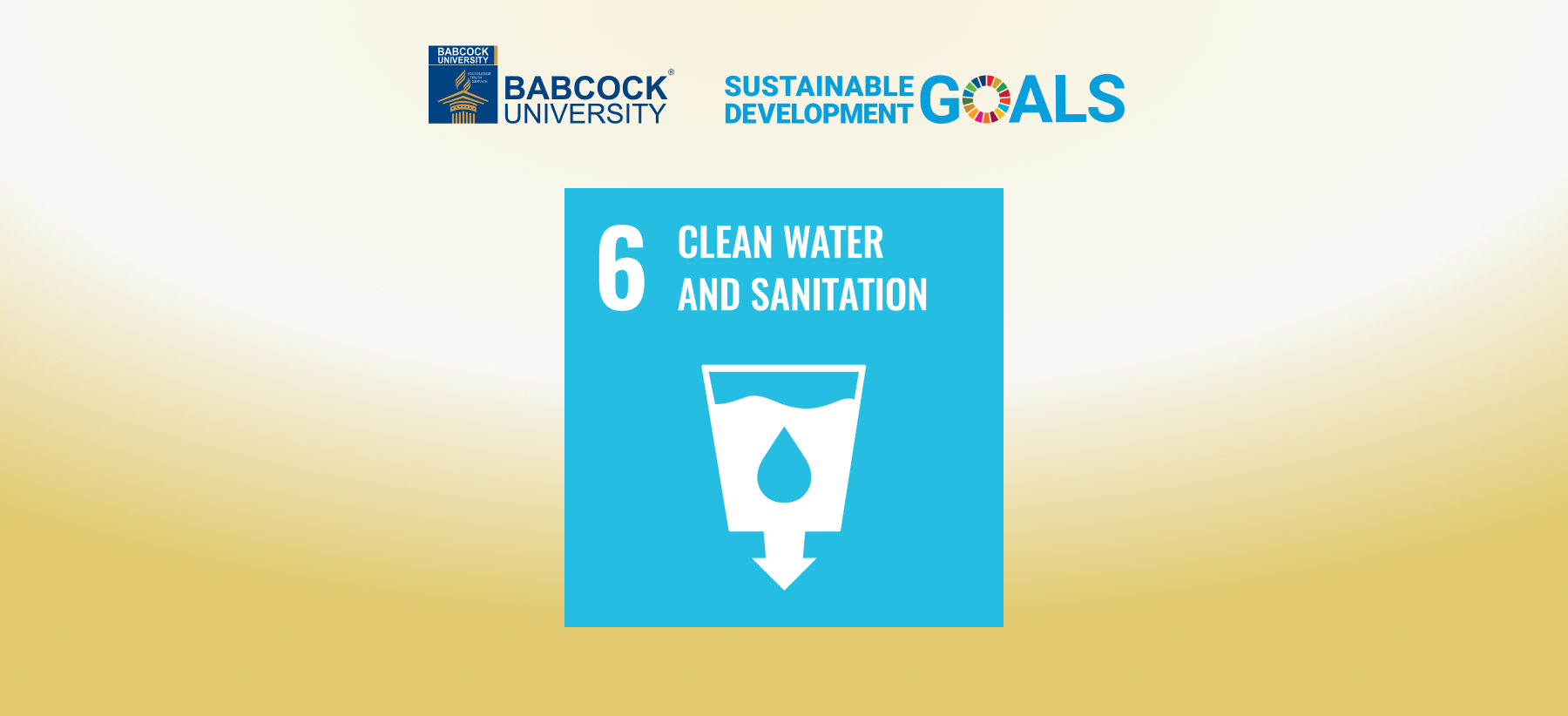Babcock University’s Commitment to Clean Water and Sanitation (SDG 6): Research and Innovation for Safer Water Resources
Babcock University is deeply committed to promoting safe, accessible, and sustainable water management. Through innovative research focused on contamination prevention, water quality improvement, and disease control, Babcock University aligns with Sustainable Development Goal 6 (Clean Water and Sanitation), contributing to cleaner water systems and improved public health.
Innovating Sustainable Solutions for Water Purification
Pollution from industrial activities poses a significant threat to water quality. The study, Adsorptive Sequestration of Methylene Blue Dye from Aqueous Solution Using Novel Roystonea regia Fruit Pericarp, explores an eco-friendly biosorbent made from Roystonea regia fruit pericarp for removing synthetic dyes from contaminated water. This innovative approach offers an effective, low-cost solution for treating industrial wastewater, advancing Babcock University’s commitment to sustainable water purification technologies.
Addressing Cholera Outbreaks Through Sanitation Initiatives
In regions prone to waterborne diseases, improved sanitation practices are essential. The study, Cholera Resurgence in Africa: Assessing Progress, Challenges, and Public Health Response towards the 2030 Global Elimination Target, examines the persistence of cholera outbreaks and emphasizes the need for enhanced water, sanitation, and hygiene (WASH) measures. Babcock University’s involvement in WASH-focused research supports public health interventions, aiming to reduce the spread of cholera and similar diseases by improving sanitation infrastructure in vulnerable communities.
Assessing Groundwater Contamination from Waste Dumping
Contaminants from waste dumpsites can severely impact surrounding water sources. The study, Geophysical and Geochemical Study of the Contaminant Impact of Oke-Tage Solid Waste Dumpsite, Southwestern Nigeria, investigates the environmental effects of leachate on soil and groundwater quality near dumpsites. This research highlights the importance of effective waste management policies to protect water resources, underscoring Babcock University’s dedication to mitigating pollution risks through science-based environmental management.
Tackling Waterborne Bacterial Infections and Resistance
Waterborne pathogens present a growing challenge due to increasing antibiotic resistance. The study, Isolation and Genotypic Characterization of Extended-Spectrum Beta-Lactamase-Producing Escherichia coli and Aeromonas hydrophila from Freshwater Sources in Southwest Nigeria, reveals the presence of drug-resistant bacteria in freshwater sources, which can endanger public health. Babcock University is committed to advancing research in pathogen control and advocating for clean, safe water to prevent health risks associated with contaminated water sources.
Responding to Hepatitis E Outbreak Risks Amid Pandemic Pressures
Access to safe water and sanitation is critical for preventing viral outbreaks like hepatitis E. The study, Prospect of Acute Hepatitis E Virus Outbreak in the Context of the COVID-19 Pandemic in Africa, highlights the compounded risk of hepatitis E spread in areas with inadequate sanitation. This research supports Babcock University’s broader mission to ensure safe, disease-free water resources by reinforcing sanitation practices, especially during public health crises.
Conclusion
Babcock University’s research initiatives align strongly with Sustainable Development Goal 6, focusing on clean water access, pollution prevention, and disease control. By driving solutions for water purification, enhancing sanitation, and supporting public health, Babcock University is paving the way for safer and more sustainable water resources, benefiting communities locally and beyond.

